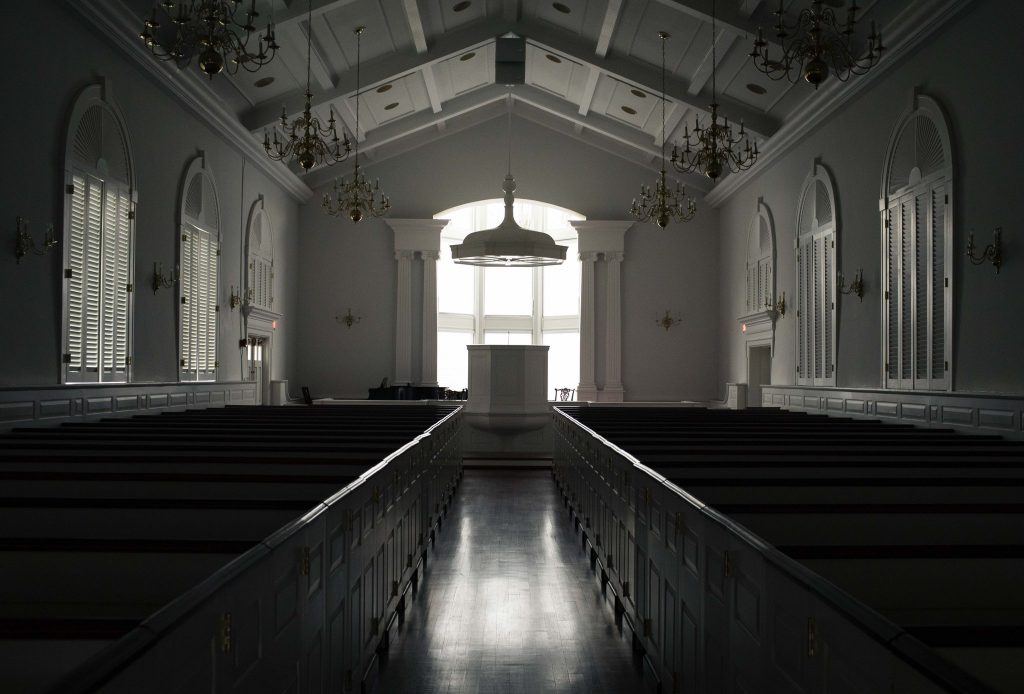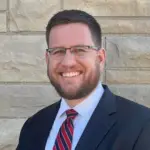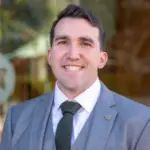I have to admit to confusion and perplexity about the claims of a student, “As I’ve walked across the campus today, I realize that an unfortunate reality is that the attitude and heart of John A. Broadus still exists.” If he means Broadus’s love of the Bible, his studied expertise in preaching, his commitment to biblical languages, and his clear exposition of the New Testament that is a good thing and not unfortunate and not perplexing. But he doesn’t; he refers to an 1893 statement by Broadus that shows a deeply-flawed judgment concerning the African-American population in the South. But in whom and where does this judgment still exist? Certainly, it is not an existential reality among any of the seminary personnel today. Nor is it present in any of the names to whom objection is being made, for they are dead to this world and now live among the spirits of just men made perfect.
This kind of observation of an “unfortunate reality” is unfortunate but is not a reality. The student was looking forward to a class under Dr. Hershael York in Broadus Chapel. It is true that to have a class under Dr. York is a great privilege and will give excellent preparation for the call of pastoral ministry. To know the story engineered by providence as to how Dr. York got here, would add to the gratitude for this opportunity. That story has a lot to do with James P. Boyce and John A. Broadus.
Pastor McKissic writes of students having to “wrestle with” a “racist posture” and an “unwelcoming posture.” I am not sure how such a struggle should arise in 2020, but there should be opportunities, both quick and plentiful, to allay fears of any confrontation with an advocate of the Lost Cause. I have not discovered any person at Southern Seminary who has an unwelcoming posture to any student. No need to wrestle. Do any of the “prominent historical personalities” have a place on the program to enunciate their resistance to the present situation? No. Their names are here to remind us of the tenacity they exhibited for the cause of theological education. They are remembered for their having given us something transcendent in value and ingenious in conception.
My correspondent on this issue expressed concern that “the racist slave legacy” would hinder “the future prosperity of our Louisville seminary.” He argues his case so that “Southern’s mission can be maintained with integrity.” Those are certainly excellent motivations for his proposition. Though I approve and join the motivation, I fail to see the force of the reasoning. To recognize the influence of Boyce and Broadus in their founding and formative impact on the theology and ministerial purpose of the school is a compromise of its mission? They did in fact establish the mission. If any hint of racism that dribbled through the seminary community and its policies for decades had not been mopped up, then I would agree. In that case, the prosperity of the seminary should be hindered. But how do present conditions and personnel perpetuate any such legacy, a merely accidental and hindering appendage to the substantive purpose of the school from the beginning?
My discussion partner and friend has expressed a lively hope for my doctrinal development. He sees a time when I will “one day see that the whole message of the Bible is for human freedom, in body and soul.” I am happy that he wishes me well in embracing the fullness of biblical truth. Not only do I presently believe that, but, along with him, I fervently look forward to the time when this mortal will put on immortality and this corruption will put on incorruption. Until then, I am satisfied with God’s providential arrangements for my life even though Ecclesiastes 12:1-7 is becoming increasingly verified in my earthly life. We are bought with a price, body, soul, and spirit and will serve him without hindrance and without question forever most freely. May the redemptive grace of Christ be praised! This hope of perfect freedom also was true during the apostolic age when the apostles wrote to both slaves and masters about their relative duties in their position as children of a heavenly master. The apostles did not ask how that relation came to pass, but only gave sound revealed instruction to both in the existing reality. I would be interested in Pastor McKissic’s understanding of those passages that I summarized in my last post on this issue.
He seems to think that I am a bit stubborn on this matter. I am actually exacerbating the matter of cancel culture, he contends, by arguing for its illegitimacy. He says that my way of “thoroughly integrating truths with persons, making the truth itself dependent upon the messenger of truth, is what encourages the ‘cancel culture’ he says he dislikes.” My method feeds into the cancel culture by encouraging “hero-worship” of fallible men. McKissic advises, “Let’s remove the hero-worship and, in this way, avoid the cancel culture.” This tautologous way of thinking confuses me. He is saying, “Let me cancel Boyce now and I will not have to work so hard to cancel him later.” If we would simply concede and cancel everything then we can avoid the cancel culture. Apart from arguments that there are good reasons for maintaining the visibility of certain names and not cancel them, we could cancel Boyce without any opposition. So, arguments not to cancel create the cancel culture.
Not only does his argument employ this tautology, he seeks to make a rational argument from a purely ad hominem imputation. My discussion partner thinks that my defense of Boyce is a species of “hero worship.” To classify that my observations and evaluations amount to “hero worship” is to appeal to some defect in my affections, reduce my reasoning to non-sense, and assume that I am not really convinced by the evidence I propose. This attribution of “hero worship” is purely an ad hominem argument. It is to say that those who argue for the continuing public recognition of Boyce’s legacy have an untested and uncritical devotion. They have a virtually superstitious attachment to the name without sufficient consideration and accumulation of objective and distinguishing qualities and accomplishments. Apart from the implications of impiety by attributing any kind of “worship” to a mere man, the nomenclature seeks to refute the point by an accusation toward the proponent rather than by giving due attention to the content of the argument.
Let us consider, therefore, some more of the evidence for non-cancellation. By tying certain ideas to persons, Pastor McKissic warns, I am harming the purity of those ideas. “Nettles seems to believe,” he writes, “that persons and principles are so bound together that if you disagree with a person then you must reject everything he said. I certainly do not believe this.” Neither do I. But, if I agree with a person on something that he said of which I had never conceived and what he said is so powerfully unique to his perceptions and formulation of ideas, it would be arrogant and ungrateful on my part to be dismissive toward him though I may disagree with him on other matters. I would never attribute the dramatic speeches of McBeth, Hamlet, or Mark Antony to any person other than William Shakespeare or try to hide his name from those exquisite works of art though I may disagree with him on a thousand other things, some perhaps even of a substantial nature. So, I would never try to hide the name of James P. Boyce and John A Broadus from the public places of the Southern Baptist Theological Seminary for they are its artistic authors and conceived of the particulars of its mission.
Pastor McKissic pursues his argument by levelling all ideas to a commonality. “Let’s treat him as a real person,” he says of Boyce “with real faults who gloriously confessed Jesus as Lord but then went on to say some true things and some false things.” And about what Christian can this not be said? Some, however, out of the sameness of their common human sinfulness, and the pressures of their environment, have risen somewhat above their peers in grace and gifts. By this sovereign distribution of gracious gifts, such individuals have made pivotal contributions that transcend the “true things” said by others and less of the “false things” embraced by their peers. Like Pastor McKissic, I could not point to a time of repentance on Boyce’s part. Had he been convinced by Scripture that his position was iniquitous and trespassed biblical standards of righteousness, I believe he would have repented. Though he recognized abuses – destructive abuses – in the system, he remained unconvinced that the system itself was wrong. Obviously, others disagree. Perhaps, recalling Eighmy’s observation about the fanaticism of abolition, he observed the arguments of Unitarians, Universalists, Transcendentalists, Garrisonians, and Finneyites and did not give sufficient attention to more evangelical arguments, such as those of Francis Wayland. It can be demonstrated, however, in harmony with Broadus, that they challenged evil manifestations of racism in the post-Civil War culture. Even the quote of Broadus in Pastor McKissic’s article was in the broader context of Broadus’s efforts to correct a darker and malicious opinion on the matter. Their stance helped to diminish the “false things” among their peers. They did not rise above them in every way to the standard of true righteousness and holiness. Who of us has?
Their saying of “true things,” however, in the defense and exposition of biblical truth is no commonplace thing. The “true things” that some people put into the history of Christian thinking are far more potent and positively influential than the “true things” that others may say. Some catch a biblical vision with such clarity and conscientious conviction that their entire life is minted in the image of that truth. In turn, the vision serves for the generational perpetuation of the truth they have expressed. Its cogency and coherence work with far greater impact, greater staying power, greater conformity to and synthesis of revelation, and gives positive formation for generations to follow than the “true things” others may say. It does not amount to hero worship to sense and express gratitude for those developments of grace that have come to us through those individuals. We do not celebrate their errors or their shortcomings when we recognize the distribution of the grace of faithfulness and perspicuity in their expansive ministries.
After citing John Lee Eighmy’s distillation of three points that southerners discussed seeking to justify slavery with reference to providence as a unifying factor, Brother Mckissic expressed his opinion that I adopt “this same argument [providence] for the institution of race-based chattel slavery.” He bases this on an observation I made in Teaching Truths, Training Hearts, that John L. Dagg’s “vision of the evangelistic advantages of the providence of slavery is not wholly indefensible.” Let me state unequivocally, I do not argue for “the institution of race based chattel slavery.” A consideration of some of the results from providence is not a justification for the actions of any of the persons in the events of providence. Given biblical precedence, however, observations of the outcomes of providence are “defensible.” The goal of investigation of the wisdom of Providence is not to prescribe a method of operating, but of discerning the wisdom of God in events that in themselves may or may not be unrighteous. The death of Naomi’s husband and sons was sad, but the events brought Ruth to Boaz, from Ruth then Obed, from Obed then Jesse, and from Jesse then David. All this clear operation of providence even without mentioning Perez or asking how the Moabites come to be. The selling of Joseph by his brothers was in their motivation filled with envy, hatred, mercilessness, and vindictiveness. Joseph, however, observing all that had come to pass by the evil of his brothers could say, “God intended it for good.” (Genesis 50:19-21). In discerning that the providence was filled with grace did not mean that he recommended selling one’s brother into slavery as a means of preserving God’s covenant. Nor would betrayal of the Son of God be recommended as an approved method of effecting the eternal covenant of redemption, but in fact God had so designed it in order that the wrath of man would praise him. An observation of Providence is not the recommendation of a method. It is, as my brother has reminded us, hitting a straight lick with a crooked stick.
In refutation of the providential argument, McKissic expressed appreciation the founders demonstrated for “the souls of my ancestors,” but said that missions to Africa was far preferable to enslavement. Absolutely! They were, in fact, involved in missions to Africa at this very time. The missions movement built upon the necessity of going to the non-believers of the world as promoted by William Carey, Andrew Fuller and their company of supporters and Adoniram Judson and the large company of Baptist missionaries that followed in his train is the revealed way of taking the gospel to the nations. Given, however, an inherited situation in which large numbers of Brother McKissic’s ancestors were present—through whatever brutal and unrighteous means were used—is a refusal to give them the gospel to be pursued as a righteous protest against the inhumane means of their having arrived on the plantations?
While many owners were opposed to any attempts to convert slaves to Christianity, Boyce was zealous for the gospel to be given. He was among those who, as Eighmy observed, advocated “the need for humane treatment and religious instruction of slaves.” This disposition is not a defense of slavery as an absolute, but, in light of its engrafting into a society, a necessary orientation to it. Boyce published an appeal that no manager of a plantation or owner of slaves “should rest satisfied until he has taken the means either to provide an instructor for his negros or has contrived a means to instruct them himself. Who can estimate the worth of even a partial acquaintance with the Bible? Who knows what effect for eternity the knowledge of the plan of salvation may have? A soul saved is worth all the labor, all the toil, all the expense, which is now expended for the whole South in Missions among the blacks. Of how much more value is the salvation of thousands?” However transparent it may be to us now that such an appeal in such a situation presents a great irony and is filled with a sense of condescension, contradiction, and privilege, if we can suspend our cynical look at the culture, concede at least sincerity to a young Boyce, and grant an independent and absolute value to the propagation of the gospel even in such a situation, we too might see some gracious benefits in the midst of that context.
Our only other option seems to be the adoption of Jon Butler’s contention that slavery produced an African Spiritual Holocaust. Not only did those stolen by slave traders—both other Africans and Europeans—lose the freedom they experienced in their homeland but their native African religions were lost. Having interpreted life and found stability, joy, and purpose through a worldview base on traditional African religion, their christianization fragmented their lives and robbed them of wholeness. Given that interpretive option, is it wrong to observe that providence—though it involved a lot of crooked sticks—brought thousands and eventually millions to a saving knowledge of the gospel. If we compare the offensive period nomenclature Boyce used, “his negros,” to the desire for gospel proclamation, we will test our own minds as to the relative values of time and eternity.
Pastor McKissic assures his readers, “Please remember I am fully supportive of the educational mission of The Southern Baptist Theological Seminary as it has been authorized by our Southern Baptist Convention of churches.” He goes on to say, “I want to help Southern Seminary be trusted fully among those who love God and believe his inerrant Word but who do not, like Nettles, see Boyce as a hero.” I contend that, without Boyce, my friend would not even have an opportunity to be “fully supportive” of the seminary and its mission. This school was not the natural outgrowth of inevitable denominational wisdom but was virtually solely the work of Boyce. He pursued his vision often in opposition to many who doubted its legitimacy, who questioned its trustee-method of governance, and felt that Boyce had too much ownership of the school. Boyce lived and toiled in Louisville from 1870-1877 seeking a revitalization of the seminary’s endowment, a place for its buildings, and support from the community. What he anticipated as three years of work turned into seven. In 1874, during a particularly difficult time of opposition and misunderstanding, Boyce answered the accusation concerning his personal control with this passage:
If to have longed for the existence of such an institution from before the time of my ordination to the ministry, if to have prayed and labored for it, for the past nineteen years, if to have urged it upon unwilling hearts, and to have argued for it with those who found objections to it in other theological seminaries which had no application here, if to have succeeded in developing a plan which had never before been adopted of combining all classes of our ministry in one institution without detriment to any, if to have sacrificed for it the ease and comfort which might otherwise easily have been mine, if to have spent days and years of humiliation in begging for it, stooping to do for this institution what I would not do for bread to eat if I were starving, if to have foregone numberless opportunities of bettering my pecuniary condition, and to have oftentimes incurred embarrassments that its credit might be sustained and its faculty paid, if to have subjected my family to deprivations which have caused my nearest friends to accuse me of injustice to them, if to have spent sleepless nights and to have more than once endangered my health and even my life, if to have done these things makes the Seminary mine—and in what other sense is it so?—then may I not say it?—I accept it as such to make all that it is and all its glorious possibilities a free gift to the Baptist denomination of the South. To God I cannot give it, for it is He that has himself as I believe given it, through the toils and sacrifices of thousands of His servants, for the blessing of the world.
I am sure that the founders could not care less as to what happens to their names now among the dying of this world. Their names are in the Lamb’s Book of Life and they see the beauty of their Redeemer and approach him with unvarnished praise and gratitude for sovereign grace in the rescue of sinners. They do this in the company of many of their former slaves. They would lose nothing by the removal of their names. They do not see themselves as heroes. We, however, would lose much. We would lose reminders of the faithful, sacrificial, and often tortuous and torturous path of commitment that led to the present moment of being “trusted for the truth.” This would be replaced with a diminished wonder at divine providence, a more flattened and less sobering gratitude for persevering sacrifice in the pursuit of a superior cause, the absence of a palpable manifestation of how the purpose of God is even grander and more comprehensive than that of the progenitors of an excellent idea. In hiding the names, these things would be replaced with a false sense of our virtue and purity.





























